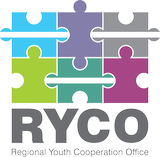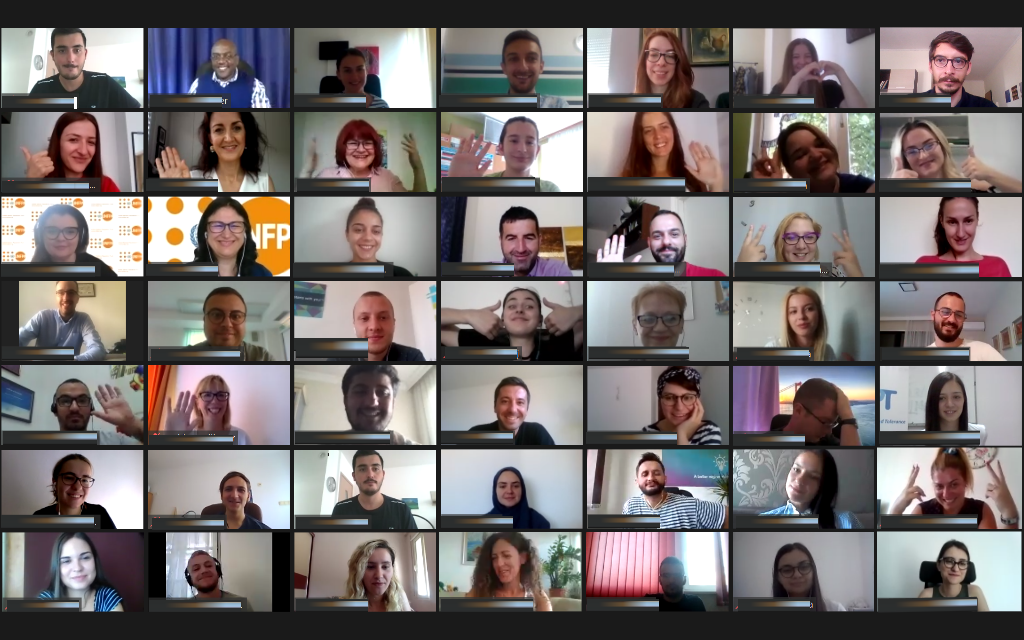WESTERN BALKANS – Organized within a joint RYCO-UN project supported by the UN Peacebuilding Fund, RYCO and UNFPA are implementing the Western Balkans Y-Peer Training of Trainers, gathering 21 young people from hard to reach groups who will become ypeer trainers. Through a series of online and planned offline trainings, the participants will develop new capacities and competencies on issues related to youth, peace, and security.
The first three-day online interactive workshop is taking place on 22 – 24 July, whereas face to face activities are planned to be held from September onwards.
The participants were greeted by UNFPA Country Director for Albania Ms Nigina Abaszade and RYCO Deputy Secretary General Mr Fatos Mustafa.
In his opening remarks, Mr Mustafa underlined that promoting peace and security in the Western Balkans is of critical importance, and added that young people can be the real change makers in pro-actively shaping a peaceful future for all.
“No one can reach your peers better than yourselves, meaning, making extra efforts to make sure all voices are heard, not just those who have opportunities and access, but also those who are more vulnerable, marginalized or hard to reach than others,” the RYCO Deputy Secretary General underlined.
“This training will create an enabling environment for youth, who with their engagement and commitment will enhance their potential and connect with other peers in the region,” Ms Abaszade said and added that young people are a vital resource for the society.
“We believe in young people’s power to transform any crisis into opportunities,” the UNFPA Country Director concluded.
The Training of Trainers is undertaken in the framework of the “Supporting the Western Balkan’s Collective Leadership on Reconciliation” a joint UN-RYCO project, with the financial support of the UN Peacebuilding Fund, and implemented in partnership with RYCO, UNDP, UNFPA, and UNICEF.
The project aims to empower young people in having their voice heard in public decision-making processes that affect their lives, as well as strengthen their role in building and maintaining safe and peaceful environments for themselves and their communities. Upon the completion of the training, the participants will organize local workshops in their communities, utilizing their newly gained skills and knowledge, expanding the ypeer network among their groups and promoting best innovative ideas of peacebuilding coming from young people themselves. Some of these ideas will be supported and implemented in the following months.



